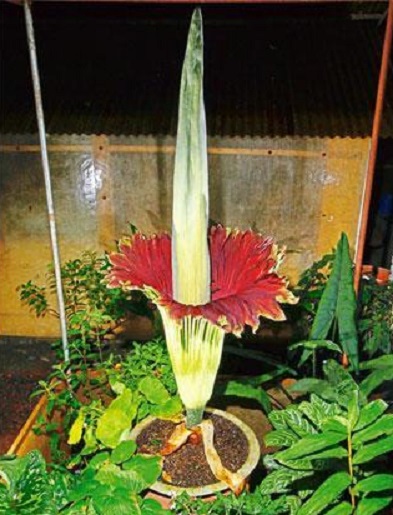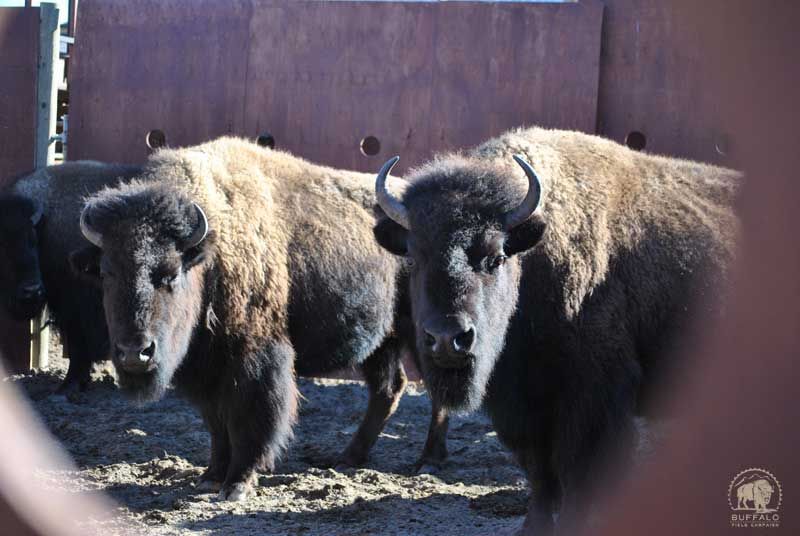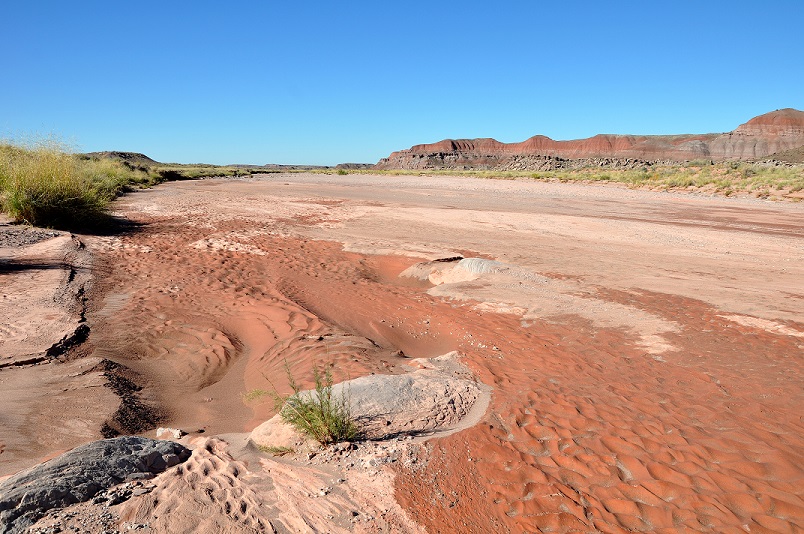We were not meant for this. We were meant to live and love and play and work and even hate more simply and directly. It is only through outrageous violence that we come to see this absurdity as normal, or to not see it at all. Each new child has his eyes torn out so he will not see, his ears removed so he will not hear, his tongue ripped out so he will not speak, his mind juiced so he will not think, and his nerves scraped so he will not feel. Then he is released into a world broken into two: others like himself, and those to be used. He will never realize that he still has all his senses, if only he will use them. If you mention to him that he still has ears, he will not hear you. If he hears, he will not think. Perhaps most dangerously of all, if he thinks he will not feel. And so on, again.
–Derrick Jensen, The Culture of Make Believe
Every morning between 8:00 and 9:00 am in this upwardly-mobile-yet backward district, the country-roads are full of children commuting to school, hoisting bags laden with what they believe is the wisdom and know-how of modern culture. They are going for vidyabhyaasam (education, or more literally speaking, ‘the exercise of knowledge’), and they go to the keepers of this knowledge, to teachers in schools. Everyone (parents, children, the state and society) deems this to be good and necessary.
For many years, I’ve been observing more and more of my rural and tribal neighbours pack their children off to school. While I’ve long been a champion of equal opportunities (including equal wages), I’m now starting to believe that a dark and dangerous psychic predicament is falling upon this land, in part aided by the simultaneous entry of television into village homes, and a slew of fickle government policies, in the bid for progress, modernity and the end of poverty.
I’ve been observing how self-reliance and land-based sustenance have been, more or less, replaced by a mobile populace commuting daily in the hope of finding skills, knowledge, support, wisdom and security elsewhere. I believe that the notion that the ‘other is better’ than self and home, that this ‘other’ can be acquired through hard work, enterprise, subsidies and bank loans which constitute progress, that everyone is now entitled to this ‘other’, is here in our midst.
Since mental and social strife are also increasing (in the form of various disorders and illnesses), perhaps this version of modernity, underneath all the glitter and promise, needs some examination. Is it for instance, instilling aspirations that can never be truly fulfilled? Is it exchanging one type of poverty for another? What happens to family and community relations once the young leave? Where do these children go on to, once schooled?
The subsidiary thesis of this essay is that modern education serves a version of Gulag, by forcing our young to suffer unspeakable conditions at an early age, by compelling them to do school work and home work for a greater part of their day. By sustaining this over long periods, at the most crucial time in their vulnerable years, it breaks them, to refashion them into a pliable workforce. By the end of schooling, the young are yoked, through fear and the promise of salvation if they succeed. If they fail, as indeed most do, they are consigned to lesser destinies. This arduous entrainment, under enforced routine and vigilance, is essential for the great global workplace, and can only happen with various forms of rewards, promises, threats, violence and incarceration.
Incarceration (both voluntary and involuntary), when sustained and normalized, leads to a range of issues—shutdown, frustration, disorder, escape, split psychologies, helplessness, dissociation, physical ailments and phobias. These can be seen amongst children, prisoners, slaves, caged and beaten animals, controlled peoples.
The primary thesis of this essay is that the psychic predicament just outlined goes hand in hand with the destruction of life, with the catastrophic end of the biosphere.
I am the resident environmental educator of the Gurukula Botanical Sanctuary, a tiny conservation centre in a rural setting at the edge of a forest in Kerala. My work is to enable educational processes ranging from the short-term single encounter to entire curricula based on nature. While my friends and I teach mainly about plants and animals and the tropical forest environment, our mission is to grow a culture based on nature. We believe this to be of paramount importance in the coming decades—to create places of resilience, where plants, animals and humans have a chance of surviving the ecological holocaust that is upon us all.

Image: the blooming of the Titan Arum, the world’s largest unbranched inflorescence, more than 3 meters in height. Ananda Banerjee, Live Mint
A DIY manual for starting schools in a new land might read:
First persuade, seduce, bribe or devastate the people. Break up their society, their beliefs, and their ways of life. Take over their rivers, and their forest. Do this by hook or crook. Or use plain force, no pretence. Convince them that it’s for their own good; even better, work on the young. Instil the idea that you have something supremely better to offer.
Draw them into the concrete jungle, into the cyber machine, into the factorial workplace, into the idea of the good life in the shining city. At all times control their food and water; this instills fear and compliance. Then, sever their allegiance to their bodies and psyches; hook them to the machine.
Be the mighty provider.
Evicted populations, trans-located communities, weakened land-based cultures, migrant workforces need to be dealt with; they need to be fed, watered, educated, employed, treated, housed and kept docile with entertainment. You have them when you’ve sold them the idea of choice while you’ve closed all the exit points, and they eat what you supply. Enter a new species of human bred on petroleum-driven food, petroleum-driven water, petroleum-driven health, petroleum-driven culture, petroleum-driven mind. The trademark of this taxon? Supreme entitlement.
Little bodies I’ve known, bodies tumbling, climbing, swimming, running, now sit still for long hours, with book/notebook/pencil in hand, in thrall, if not of the authority at the far end of the classroom, then of their fantasies. Little minds I’ve known, curious, aware, sensitive, attuned to the lives of creatures, rivers, land and each other thrown into the maw of the global machine, to be carried away to faraway lands and cities.
The word teacher comes with hefty lessons. The young are given thoughts, ideas and behaviours to follow or imitate, and to believe without question, to accept without dispute, and to ignore the call of their own bodies. By the end of schooling students take the following to be truths—everything comes with a price tag; it’s possible to have an economy without an ecology; the earth is irrelevant; other humans are irrelevant; life is a matter of goods, gadgets, cash transactions and services.
It’s a rare teacher who hugs a child, a rare school where children spend more time playing than sitting at desks; a rare home, and a rare community that does not send its children away to the cold vigilant ‘care’ of ever-distant adults of varying backgrounds and temperaments, teaching ever-distant things, for the sake of progress and human betterment.
This sending away, for many children, experienced variously as severance, uprooting or exile, is done with good intention, and full conviction. Indeed, the state of most homes, and most communities, is pretty bleak. Adults send their young ones away, to be saved mostly from themselves, from lives of mental, social or physical penury.
At school the attention-commanding teacher spawns inevitably a secret second life for the child, open eyes with still bodies, and minds ranging far and free. ‘The split’ that is now widely recognized to be at the root of social dysfunction and psychopathy is spawned by authority, in other words fear, and mostly in school. Forced bodies, forced behaviours and forced thoughts. Deviance is the only way out.
The Left, the fringe, the rebels and the spiritually-minded have clearly outlined how schools breed factory workers, zombies and psychopaths. I’d like to propose that schooling is necessary for building a hierarchy of egos by destroying the individual’s inherence in community through an insidiously brutal system of reward and punishment normalised in the name of education and social advancement. This hierarchy of egos, with an elite at the top commanding much of the world’s wealth and people, is essential to genocide and ecocide.
Today, I’m on a journey with a friend of mine, a Kurchiya tribesman. We’ve just come out of a forest to a town bursting with tourist operations, shops selling trinkets, hippie clothing, foods and multinational beverages. A protest march is spilling onto the streets. I look back towards the jungle, with its thousands of species of living beings, its hills, rivers, valleys, and rain clouds swirling, upswelling. Then my gaze cursorily moves over a famous quote painted on a compound wall, ‘Education is the most powerful weapon with which you can change the world’.
My first thought is that different realities can be juxtaposed in one eye sweep. Second, obviously Mandela was not a pacifist. Third, there’s a premise here, that education is a positive thing, and that there is a shared definition of education. Fourth, Hmmm, that sounds like propaganda, it’s a statement aiming to change the world. Fifth, if the word weapon is being used, surely there’s a war going on, or theft, injustice, or unspeakable violence, and that education is part of militant struggle. My sixth thought is that that quote is now used by liberals, right-wingers, leftists, corporate-types and has over two million hits on Google! Just goes to show how great quotes can be co-opted to serve any agenda!
Are the following true or false, or just inconvenient?
Modern education serves the corporate mindset, which serves a psychopathic mind-set that is behind planetary destruction.
Modern education feeds young minds and bodies into the industrial machine. It does this, overtly or covertly, by destroying traditional forms of community and replacing them with notions of the global workforce, the global market. By doing this it ends up serving forces of capitalism, industrialism, and a system that rewards the elite.
Increasingly, modern education is predicated on authoritarian expertise, as well as what Lewis Mumford called authoritarian technics. These are indispensable to the dominant culture.
Modern education fetishizes abstraction. It rewards adepts of abstraction and standardization. By starting this early in life, the body becomes subservient to concept and clock, to the virtual, the distant and the measurable.
The standards set by modern education are impossible to achieve for a greater part of humanity. These are set by the dominant culture against its own people, let alone other cultures and traditions, and require a failure system, thereby providing the labour for industry. In other words, modern schooling fractures the individual in a number of irreparable ways, in the name of progress and human betterment.
The fractures are complex, and many: the child from sustained intimate body contact with mother, with family, and from neighbours; the child’s mind from it’s body, from the natural environment, common/community sense, the land-base; the real from the abstract; from the multi-dimensional, to the two, and the virtual; from local history to the distant and someone else’s future or past (presented as if it’s ‘ours’); the child from the organic; the child from wholeness, towards a fragmentedness (to a state of continual defensiveness); the child from magic, oral histories, gleaming cosmologies, peopled and alive to facts derived by unknown people and machines; the child from living beings to inanimate things; the child from rootedness and sense of place; the child from natural, cyclical, expansive time.
Through the process of indoctrination, enculturation, socialisation and a belief that the children are tabula rasa, and need to be filled, a splitting is achieved in a slow and deliberate way.
Life is thus reduced to a matter of negotiating between split worlds, split mind-bodies, split communities, split realities, split values, split responsibilities, split knowledge domains, split geographies (this is home, that is school), split identities, split loyalties.
How can a little human being possibly tolerate this?
R D Laing wrote:
In order to rationalize our industrial-military complex, we have to destroy our capacity to see clearly any more what is in front of, and to imagine what is beyond, our noses. Long before a thermonuclear war can come about, we have had to lay waste to our own sanity. We begin with the children. It is imperative to catch them in time. Without the most thorough and rapid brainwashing their dirty minds would see through our dirty tricks. Children are not yet fools, but we shall turn them into imbeciles like ourselves, with high IQs, if possible.
Is it a stretch of imagination that school life is a continuous process of disintegration and estrangement? By the end of formative education, study after study guarantees that few remain with healthy levels of self-esteem and self-worth, including the ones who worked hard, and proved to themselves that they could achieve their goals and desires. How many students leave school with vibrant connections to communities that they will contribute to, as it has contributed to them? How many are comfortable in their skins? How many remain ‘whole’? The subtext for graduates of schooling goes thus—her body is better than mine, their body type is better than our body type; his mind is better than mine; their minds are better than ours. Their culture is better than mine—television says it’s so.
My friend, a superlative tracker, now raises his children on a diet of Animal Planet and Discovery channels, homework, white rice, white sugar. No jungle meat, no walks on the wild side. I ask him if he intends to teach his jungle craft to his children, for what use would it be if they can’t hunt anymore, if there are bans on collecting wild medicinal plants. He says he will, that he wants his children to know healing with plants, and the ways of animals, but that he also wants them to go to school. Vidyabhyaasam is a good and necessary thing, he too declares. I ask him about Kurchiya vidyabhyaasam. He misunderstands me and says they have no schools. I ask him how they teach their young. He replies that girls and boys are socialized to become responsible members of their community, with different sets of instructions for either sex, offered by elders in the community or their parents, through a variety of rituals, celebrations, guidance and tasks. Children start early to follow adults. Boys, for instance, have bows made for them when they are very small, just to play with, and then they start accompanying the men to the forest, where there is a lot to learn about every animal, and about the forest.
I figured out today that at any given moment in this decade, approximately two billion humans are at school- (and university-) going age. Whether they receive an education or not, that’s two billion human bodies in preparation for industrial capitalism’s greatest venture—converting the living body of the planet into profit through manufacturing goods and services.
The math itself is not hard, it’s far from cognitively challenging. Assuming that most of them get to the tenth standard, at any given point in time 200 million are either graduating or failing to graduate. Those failing to graduate will end up in factories, slums, the streets, the military, and of course detention facilities.
Those graduating will go on to higher education. Assuming that 10 per cent go on for higher education, twenty million are in universities. After three years of college, approximately seven million graduate or fail to graduate. Those failing to graduate go to factories. Those graduating go on for PhDs, and most of them will serve the corporate research agenda. It is guaranteed that all will serve the dominant culture in one way or another; all will serve the industrial production system. As will my Kurchiya friend’s children, assuming that the world’s still here when they reach adulthood.
Pink Floyd asked “Did you exchange a walk on part in the war for a lead role in a cage?” in the song Wish You Were Here (1975).
The Kurchiyas were mercenaries in the battle of a Malabar chieftain against the British colonizers. They were fierce rebels and proud fighters. They could read the forest better than you and I can read a book. Now they work for wages, and their children go to school. Once they’ve been educated and urbanised, their bows will be mass-produced for tourist outlets; their elders will recount tales of valour to travellers in homestays, between television commercials; and their amazing bodies will succumb to various forms of civilization-induced diseases like diabetes, hypertension and cancer.
An oft-touted development mandate goes something like this, ‘Get the children in school, the crime rates will drop’. The more I see the effects of modern civilization the more I think, “Get those children in school, make them extensions of the machine, and sure, the living world, the real world, including themselves, will drop.”
Krishnamurti writes in Education and the Significance of Life:
Where there is love there is instantaneous communion with the other, on the same level and at the same time. It is because we ourselves are so dry, empty and without love that we have allowed governments and systems to take over the education of our children and the direction of our lives; but governments want efficient technicians, not human beings, because human beings become dangerous to governments and to organized religions as well. That is why governments and religious organizations seek to control education.
A little more on Gulag, used here metaphorically to lift a veil of denial of a cruel and inhuman system of oppression under our very noses, one that most of us have been through, and even subscribe to. People survived Gulags, the official acronym of the Soviet penitentiary system, one intended to punish, or re-educate criminals, psychopaths, and tens of millions of political dissidents, a system that was promoted as a progressive and educational service to the state, through enforced labour. The conditions were brutal, saturated with death and deprivation, and more than a million died. Likewise, our schools are mostly brutal, saturated with fear, where billions of souls die in their hearts and minds, hardly the stuff of human betterment and progress. How many of us survive our schooling?
Coincidentally, as I do my final edits on this piece, a friend of mine shares an Occupy Wall Street protest movement poster on Facebook that reads:
Feeling sad and depressed? Are you worried? Anxious about the future? Feeling isolated and alone? You might be suffering from CAPITALISM. Symptoms may include homelessness, unemployment, poverty, hunger, feelings of powerlessness, fear, apathy, boredom, cultural decay, loss of identity, selfconsciousness, loss of free speech, incarceration, suicidal or revolutionary thoughts, death.
Krishnamurti also says, “It is no measure of health to be adjusted to a profoundly sick society.”
And what a sick society it is leading to planetary collapse largely through the toxic end-effects of industrial civilization; a society that accepts systemic violence, overt and covert, threatening to destroy human societies and all of nature. What will it take to bring about a sane society in a world run by supremacists? Do current educational practices not serve this dangerous state of affairs? Can education, instead, bring about a new culture? More crucially, is there time left for a different education? How can the young, and the wild, survive this toxic era? In the face of collapse, can different kind of education bring about a new culture, one that is not based on hatred, domination and control (of humans and the environment)? Who is going to do it?
I encounter the dream, materialized, every time I enter Bangalore, through the ever-sprawling new towns of Nagarabhavi, Kengeri and Bidadi. Houses upon houses, tiny cement buildings, endless traffic lines of shiny new cars, smoking rubbish heaps, malls, the gargantuan nevercompleted flyovers. I join the millions who throng the city, where not so long ago, hills and streams and farmland used to be. Little children play cricket on the melting tarmac, pi dogs frolic in the filth, potholes grow treacherous; and the air is thicker, more toxic.
Being a biophiliac, however, I am drawn to bodies, living beings. I see the force of life surging through every attempt to cage, poison or smother it. Something wild and true surviving despite the worst nightmare it finds itself in. A thing that has never known a forest, and does not seek it, and yet is still wild, this play of nature through human bodies, in these creatures of the earth, these children playing cricket, these men and women going about their daily lives, these lungs breathing, these hearts beating. Now seeking a tap, now a bottled drink, a mobile phone, a slightly larger house, more paint on the walls, a uniform, a school bag full of books; an education. Salvation. All in order to find happiness, joy, fulfilment, security. This wild thing mistakenly identifies the source of its life to be the machine, a sleight-of-hand trick achieved through decades of relentless and systematic misdirection.
I place my hope on the fact that tricks can be undone. Like the last remaining wild places on the planet, surely at the core of every being is a fierce and deep awareness of what it’s like to be free.
Suprabha Seshan lives at the Gurukula Botanical Sanctuary, a small plant conservation centre, at the edge of a forest in the hills of Kerala, India. She is an environmental educator and restoration ecologist, an Ashoka Fellow, and winner of the 2006 Whitley Fund for Nature award.






